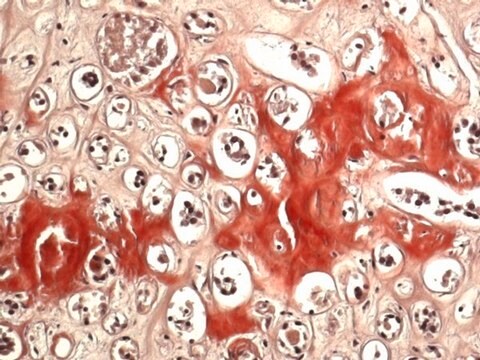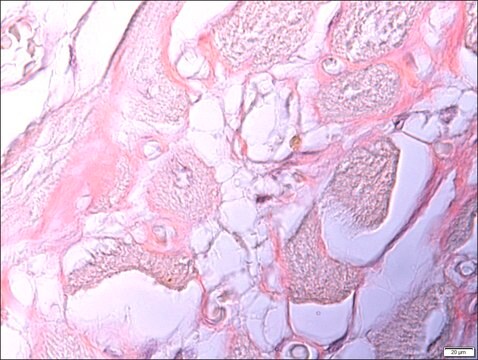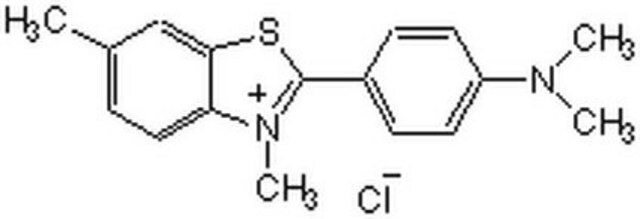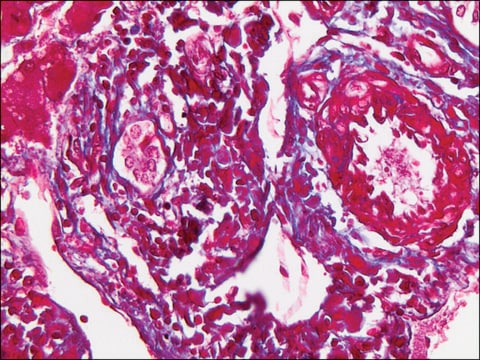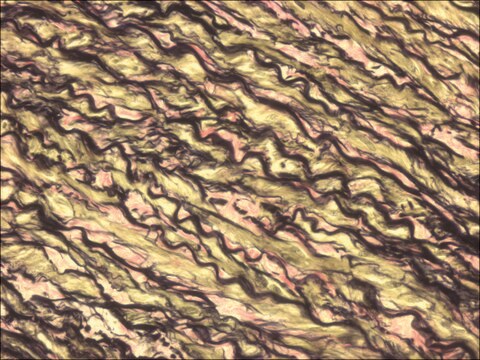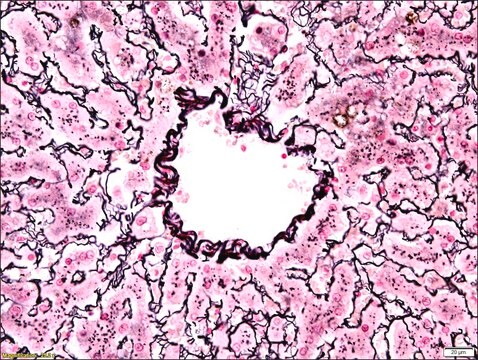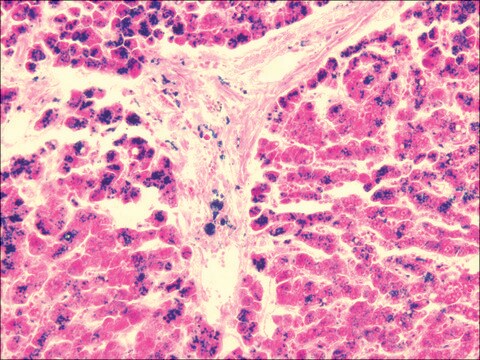Wichtige Dokumente
HT60
Amyloid-Färbung, Kongorot
Synonym(e):
Amyloid-Färbung, modifiziert nach Puchtler
About This Item
Empfohlene Produkte
Haltbarkeit
Expiry date on the label.
IVD
for in vitro diagnostic use
dilution
(for histology)
Anwendung(en)
hematology
histology
Lagertemp.
room temp
Prinzip
Nur Kit-Komponenten
- Congo Red Solution (kit only) 500 mL
- Sodium Chloride Solution, Alcoholic (kit only) 500 mL
- Sodium Hydroxide Solution (kit only) 2 x 12
Ähnliches Produkt
Signalwort
Danger
H-Sätze
Gefahreneinstufungen
Carc. 1B - Eye Irrit. 2 - Flam. Liq. 2 - Met. Corr. 1 - Skin Irrit. 2
Lagerklassenschlüssel
3 - Flammable liquids
Flammpunkt (°F)
57.2 °F - closed cup
Flammpunkt (°C)
14.0 °C - closed cup
Hier finden Sie alle aktuellen Versionen:
Besitzen Sie dieses Produkt bereits?
In der Dokumentenbibliothek finden Sie die Dokumentation zu den Produkten, die Sie kürzlich erworben haben.
Kunden haben sich ebenfalls angesehen
Protokolle
A stem cell culture protocol to generate 3D NSC models of Alzheimer’s disease using ReNcell human neural stem cell lines.
Unser Team von Wissenschaftlern verfügt über Erfahrung in allen Forschungsbereichen einschließlich Life Science, Materialwissenschaften, chemischer Synthese, Chromatographie, Analytik und vielen mehr..
Setzen Sie sich mit dem technischen Dienst in Verbindung.